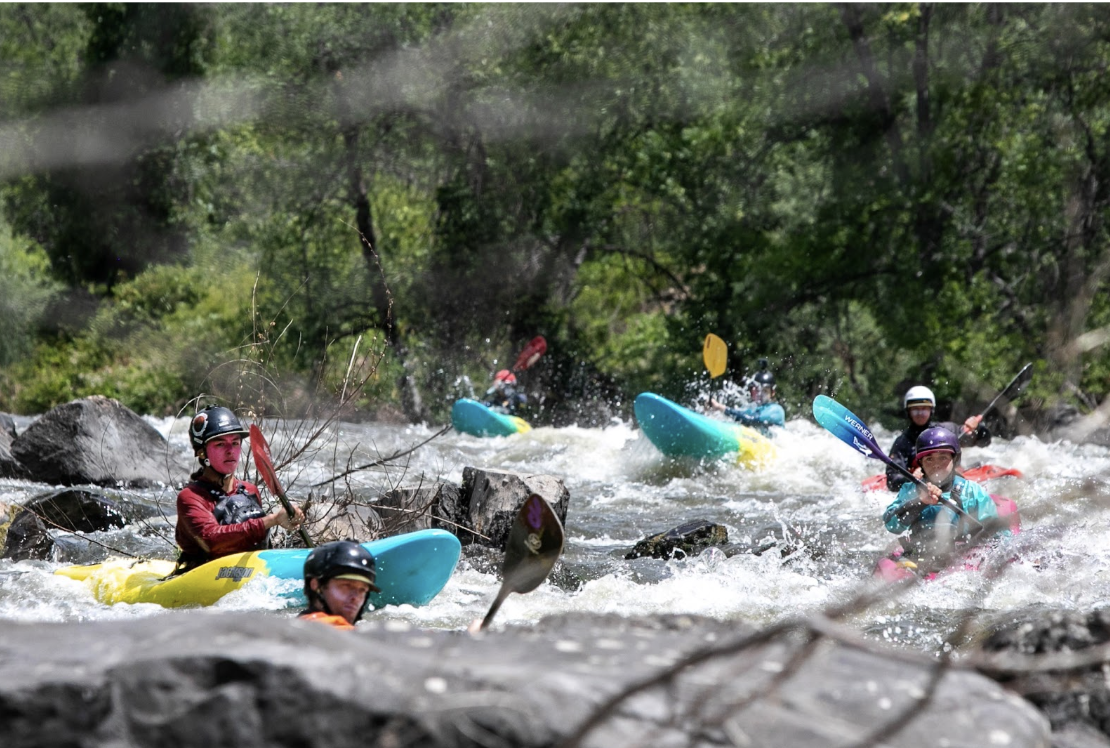
- Details
- By Kaili Berg
A new short film from Oregon Public Broadcasting offers a look at a once-in-a-lifetime journey down one of the West’s most storied rivers.
First Descent: Kayaking the Klamath follows 28 Indigenous youth as they paddle the full 300-mile stretch of the Klamath River, from its headwaters to the Pacific Ocean, marking the first complete descent since four major dams were removed.
Directed by Karuk filmmaker Jessie Sears, the 30-minute documentary focuses on the identity, renewal, and the ongoing restoration of a river that has been the lifeblood of the Klamath Basin’s Indigenous nations.
“This film is not just a kayaking story,” Sears said in a press release. “It’s a story of Indigenous success and reconnection. It’s about coming home to the Klamath river, and the river coming home to itself.”
The journey was organized by Ríos to Rivers, a nonprofit that connects young people to waterways through education and cultural exchange. For many of the participants, the trip represented years of training and preparation, learning not only technical kayaking skills but also how to advocate for the rivers that sustain their communities.
For Sears, who had documented the historic Klamath dam removals, filming this expedition was both a professional and personal milestone.
“For far too long, Indigenous people, myself included, were afraid to be themselves,” Sears said. “It was incredibly inspiring to spend time with these youth who were pushing themselves physically while being unapologetically true to who they are.”
The film was produced by OPB’s Oregon Field Guide team, with cinematography by Sears, Brandon Swanson, and Evan Rodríguez, and editing by Swanson.
More Stories Like This
Watermark Art Center to Host “Minwaajimowinan — Good Stories” ExhibitionMuseums Alaska Awards More Than $200,000 to 12 Cultural Organizations Statewide
Zuni Youth Enrichment Project Takes Top Emerging Artist Apprentices to Phoenix for Artistic Exploration and Cultural Immersion
From Dishwasher to Award-Winning Chef: Laguna Pueblo's Josh Aragon Serves Up Albuquerque's Best Green Chile Stew
Rob Reiner's Final Work as Producer Appears to Address MMIP Crisis
Help us defend tribal sovereignty.
At Native News Online, our mission is rooted in telling the stories that strengthen sovereignty and uplift Indigenous voices — not just at year’s end, but every single day.
Because of your generosity last year, we were able to keep our reporters on the ground in tribal communities, at national gatherings and in the halls of Congress — covering the issues that matter most to Indian Country: sovereignty, culture, education, health and economic opportunity.
That support sustained us through a tough year in 2025. Now, as we look to the year ahead, we need your help right now to ensure warrior journalism remains strong — reporting that defends tribal sovereignty, amplifies Native truth, and holds power accountable.
 The stakes couldn't be higher. Your support keeps Native voices heard, Native stories told and Native sovereignty defended.
The stakes couldn't be higher. Your support keeps Native voices heard, Native stories told and Native sovereignty defended.
Stand with Warrior Journalism today.
Levi Rickert (Potawatomi), Editor & Publisher


